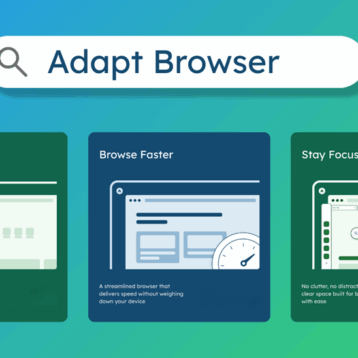Artificial intelligence has permeated our lives. It’s revolutionizing industries and reshaping societal norms. And it’s happening at lightning speed, leaving many wondering what’s around the corner and how we’ll keep up.
The legal landscape, in particular, is experiencing significant transformations. AI technologies are becoming more prevalent, and many lack clear guidance on how to use them (or not).
Hassan Taher, a noted AI expert and Los Angeles-based author from Beaumont, Texas, shareshow the evolving relationship between AI and the law is playing out, shedding some much-needed light on the complex legal implications of this technology.
“As AI continues to evolve, it poses unique challenges for lawmakers and regulators who seek to establish a legal framework that governs its application,” wrote Taher in a blog piece. “The multifaceted nature of AI necessitates a comprehensive understanding of its potential risks and benefits. While AI holds immense promise, concerns surrounding data privacy, algorithmic biases, and liability have come to the forefront.”

The Intersection of AI and Law
AI’s rapid advancement has introduced previously unheard-of challenges. But it also presents valuable opportunities for the legal profession. From predicting legal outcomes to automating the repetitive tasks that firm staff members despise, AI systems are increasingly integrated into legal processes.
But this intersection also raises critical questions. AI offers great potential if leaders remain accountable, transparent, and ethical. And nowhere is this more important than it is in the legal system. Lives, livelihoods, and careers are at stake in this field.
Given the complexity of the law and its implications, Hassan Taher breaks it down into three vital areas of consideration: privacy and data protection; inherent biases in machine learning; and liability and accountability.
AI increasingly relies on vast amounts of personal data and output created by humans who didn’t consent to have their content used in certain ways — voice actors, writers, interior designers, and other artists in various mediums, for example.
Safeguarding privacy and evaluating rights becomes paramount.
AI expert Hassan Taher emphasizes the need for comprehensive privacy regulations. There’s a need to account for the unique challenges posed by AI. Most of these issues are things that few people could conceive of until recently.
Striking a balance between AI’s potential and individuals’ privacy and ownership rights will require robust data protection measures. They should include strict consent mechanisms, data minimization, and secure storage practices.
In a recent interview with IdeaMensch, Hassan Taher shared that he’s excited about “the growing use of AI in the health care industry.” He said, “With the potential to revolutionize patient care and outcomes, I believe that AI has the power to make a significant impact on people’s lives.” However, privacy and data protection will be paramount as AI usage expands here.
AI systems are susceptible to inheriting biases present in training data. And for the most part, developers expose AI to the input they want it to learn from.
We’ve seen this issue come up with Google’s search algorithm over the years. In 2016, uproar ignited when someone found that a search for “three black teenagers” pulled up images of criminals while “three white teenagers” pulled up pictures of teens playing sports and engaging in other legal activities.
This may seem like ancient history in AI years. However, biases still plague facial recognition AI, medical applications, and other technologies, leading to potential discrimination and unfair outcomes — often among marginalized populations.
Wrote Taher, “AI systems learn from historical data, and if that data is biased, the resulting algorithms can perpetuate discriminatory practices. Addressing this ethical dilemma necessitates proactive measures to ensure fairness and inclusivity in AI development.”
It’s essential to evaluate how people use AI. One must realize that this potential for bias exists, not just concerning race but perhaps in ways people have yet to recognize.
This willingness to consider potential bias will be critical to effectively using AI algorithms in the legal system. It will help ensure that rulings can stand up to challenges, appeals, and future technology.
Of course, we’ve seen a real-world example of this recently, with felony convictions being overturned because of advances in DNA testing that weren’t available in the past.
Similarly, future AI will undoubtedly be better than today’s AI technology. Leaders must recognize its current limitations. And the legal framework needs to include guidelines for auditing AI systems. Every attempt should be made to provide diverse and representative training data. Furthermore, developers must implement mechanisms that detect and mitigate algorithmic biases.
Liability and Accountability
It’s easy to laugh at AI blunders. But what happens when AI makes a big mistake that leads to the loss of life, freedom, finances, or something else? Who is responsible? Self-driving cars may come to mind.
AI follows an algorithm influenced by human input, thus determining the path that its algorithm takes.
Undoubtedly, users of AI should be accountable for how they use it. But at the same time, how should society hold developers of AI responsible for their actions and decisions that influence AI algorithms?
The legal framework should encompass regulations and standards that ensure transparency while fostering responsible AI training and deployment.
Hassan Taher acknowledges that he has some highly contentious opinions. Still, he believes “AI technology has the potential to bring about significant positive change in the world, but many people are hesitant to embrace it fully. While some may disagree, I believe that with responsible use, AI can actually make the world a better place for everyone.”
To effectively govern AI, Hassan Taher advocates for a flexible regulatory framework. It should be able to adapt to the fast-paced nature of technological advancement. ”Establishing a clear framework for liability in the AI domain is crucial to ensure accountability and protect the rights of individuals affected by AI-driven decisions,” he wrote.
Policymakers must collaborate with experts, industry stakeholders, and academia to create agile regulations. And these frameworks should strike a balance between promoting innovation and protecting public interests.
This collaboration can drive innovation, ensure legal compliance, and facilitate a smoother integration of AI technologies into the legal landscape.
Proactivity Is Essential
Even an AI expert like Hassan Taher will admit that the pros don’t know how AI will be used in the future. But it doesn’t take a fortune teller to see that AI will transform the legal landscape and society in the coming years.
It’s imperative to proactively address the legal implications of this technology with an open mind and to maintain agility to effectively direct the path that AI takes and how it shapes our future.
“It is through thoughtful legislation, robust privacy measures,” Taher believes, “and ethical considerations that we can unlock the true potential of AI while safeguarding the rights and well-being of individuals.”










